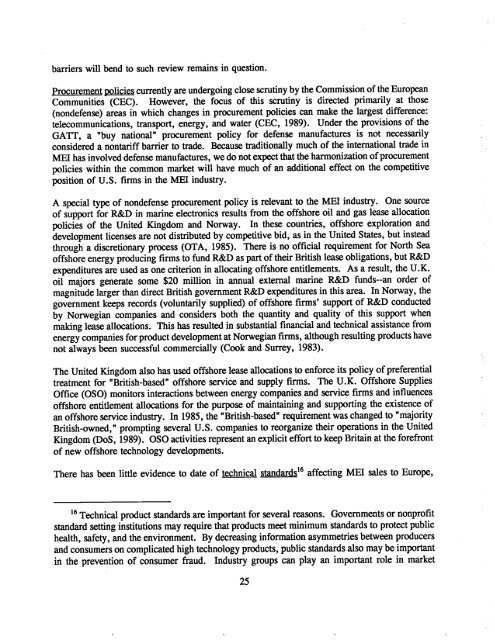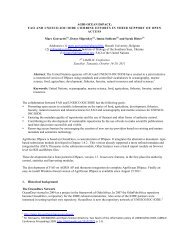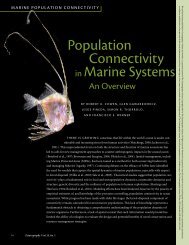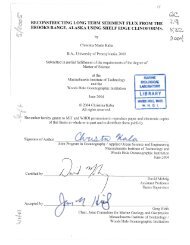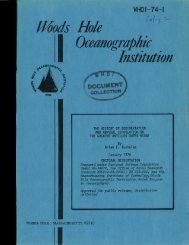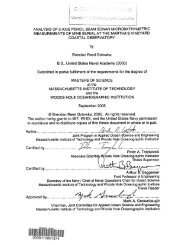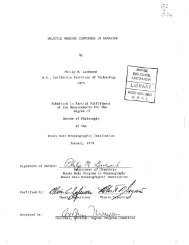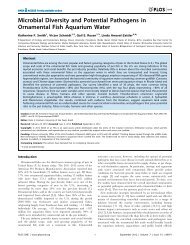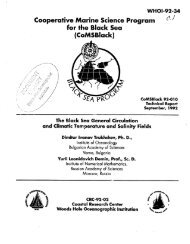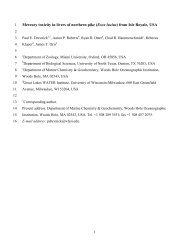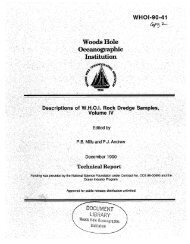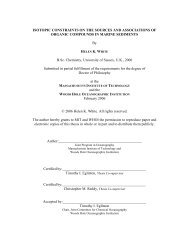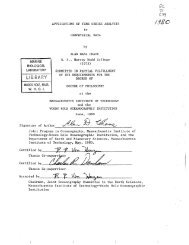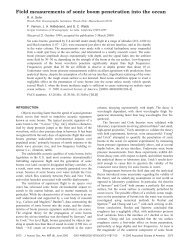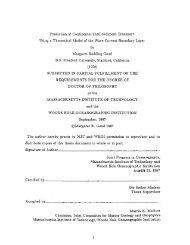WHOI-90-52
WHOI-90-52
WHOI-90-52
Create successful ePaper yourself
Turn your PDF publications into a flip-book with our unique Google optimized e-Paper software.
arers wil bend to such review remains in question.<br />
Procurement policies currently are undergoing close scrutiny by the Commission of the Europe<br />
Communities (CEC). However, the focus of this scrutiny is directe<br />
primarly at those<br />
(nondefense) areas in which changes in procurement policies ca make the largest difference:<br />
telecommunications, trsport, energy, and water (CEC, 1989). Under the provisions of the<br />
GA'I, a "buy national" procurement policy for defense manufactures is not necessaly<br />
considered a nontaff barer to trade. Beuse trditionally much of the international trde in<br />
MEI has involved defense manufactures, we do not expet that the haronization of procurement<br />
policies within the common market wil have much of an additional effect on the competitive<br />
position of U.S. firms in the MEI industry.<br />
A speial typ of nondefense procurement policy is relevant to the MEI industr. One source<br />
of support for R&D in marne electronics results from the offshore oil and gas lease alloction<br />
policies of the United Kigdom and Norway. In these countres, offshore exploration and<br />
development licenses are not distrbuted by competitive bid, as in the United States, but instead<br />
through a discretionar procss (OTA, 1985). There is no official requirement for Nort Sea<br />
offshore energy producing firms to fund R&D as par of their British lease obligations, but R&D<br />
expenditures are use as one criterion in allocting offshore entitlements. As a result, the U.K.<br />
oil majors generate some $20 milion in annual external mare R&D funds--an order of<br />
magnitude larger than direct British government R&D expenditures in this area. In Norway, the<br />
government keeps recrds (voluntay supplied) of offshore firs' support of R&D conducted<br />
by Norwegian companies and considers both the quantity and quality of this support when<br />
makng lease alloctions. This has resulte in substatial financial and technica assistace from<br />
energy companies for product development at Norwegian firms, although resulting products have<br />
not always been successful commercially (Cook and Surrey, 1983).<br />
The United Kingdom also has use offshore lease alloctions to enforce its policy of preferential<br />
treatment for "British-base" offshore service and supply firms. The U.K. Offshore Supplies<br />
Office (OSO) monitors interactions between energy companes and service firms and influences<br />
offshore entitlement aloctions for the purpse of maintaning and supportng the existence of<br />
an offshore service industr. In 1985, the "British-base" requirement was changed to "majority<br />
British-owned, " prompting several U.S. companes to reorganize their operations in the United<br />
Kingdom (DoS, 1989). OSO activities represent an explicit effort to keep Britan at the forefront<br />
of new offshore tehnology developments.<br />
There has been little evidence to date of technica stadards16 affecting MEI saes to Europe,<br />
16 Technica product stadards are importt for severa reasons. Governments or nonprofit<br />
stadard setting institutions may require that products meet minimum stadards to protect public<br />
heath, saety, and the environment. By decreasing information asymmetres between producers<br />
and consumers on complicate high tehnology products, public stadards also may be importt<br />
in the prevention of consumer fraud. Industry groups ca play an importt role in market<br />
25


